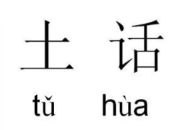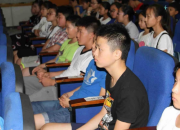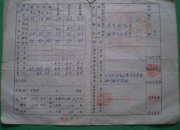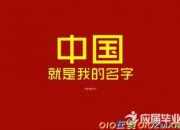山东省聊城市-学年高三上学期期中英语试卷
时间:2021-08-31山东省聊城市2019-2020学年高三上学期期中英语试卷
一、阅读理解
Given the size of the country, the climate in Australia varies greatly from one zone to the next. Generally speaking, there are four seasons across most of the country while the Top End (including Darwin, Katherine, Kakadu and Arnhem Land), Broome, the Kimberley and Tropical North Queensland experience a ‘wet season’ ( November to April) and a ‘dry season’ (May to October).
It’s also important to remember that Australia’s seasons are at opposite times to those in the Northern Hemisphere (半球). So if you’re looking for an endless summer, just head Down Under as things start to cool off in the Northern Hemisphere.
Summer in Australia falls between December and February and is famous for sunny days with high temperatures. It’s the wet season in the tropical north (November to April), which is characterised by monsoonal (季风) rains. Many tourism operations are closed for the season, so are some national parks (such as Kakadu) due to flood risks. The same period is also the official hurricane season for areas around Cairns, although storms can also occur outside of this period.
For the ideal Australian summer, head to the southern parts of the country where you’ll find hot, sunny days to enjoy the unbelievable experiences on offer. The great weather encourages a steady flock of visitors to the country’s beautiful beaches to swim, surf or just relax. Celebrate the new year like a true Australian—with a beach barbecue—or visit Sydney for their internationally famous New Year’s Eve fireworks display. It’s a popular time for travel in Australia, both for local families and international visitors. Check the school holiday calendar for more information on break periods, and remember to book your accommodation in advance to avoid disappointment.
1.Which month is considered as a dry season in Broome
A.April.B.September.
C.November.D.December.
2.What does the underlined part “Down Under” in Paragraph 2 refer to
A.A club.B.An airport.
C.Australia.D.The Northern Hemisphere.
3.What is the main characteristic in the northern Australia in summer
A.Bad weather.B.The beach barbecue.
C.Fireworks.D.Beautiful beaches.
I saw the most beautiful thing ever one morning. It was early with a slight frost on the ground, and I was walking on grass down to the farm—my mind on the daily routines.
Suddenly a shining flash erupted straight from the ground about 15 feet in front of me, and shot up into the sky. It was so brilliant, clear and clean. I thought the only thing that could make such a flash must be a diamond—maybe someone had lost some kind of jewelry. Or some kind of lightning strikes—so bright. I waited to see if it repeated but it didn’t.
I walked slowly towards it. There was nothing to see. I stared down at the grass, searching for gold or some kind of metal. Nothing. So I dropped down really close and there it was! A tiny spider’s web, delicately hanging between grass, flashing in a number of colors. The rising sun had caught the exact angle of the dewdrops (露珠), and that light had exploded up into the sky.
It was unbelievable, such a powerful flash from something so small and fragile, and I would have destroyed it beneath my feet. It was as if the unseen world was giving me a heads-up. Hello! Look what’s around you. I’ve never forgotten that moment.
So take some time to notice the wonder of nature that most of us never even see. So much beauty all around us if we would only take the time. Look at the tiny flowers that cover playing fields—we walk all over them without a second glance. The colors of practically any flower on the earth are breathtaking and all natural—if we would only notice. Take the time and discover from nature one secret beautiful thing that you can keep in your heart. Take a picture. It’s what life really consists of. And it’s free.
1.What actually caused the flash
A.A diamond.B.The lightning.
C.A piece of metal.D.A spider’s web.
2.Why did the writer feel the discovery unforgettable
A.The flash is very splendid.B.The spider’s web is mysterious.
C.The shining object was priceless.D.Something small touches her soul.
3.What does the writer try to convey in the last paragraph
A.Appreciate the beauty of nature.B.Be considerate towards the weak.
C.Find time to play outdoors.D.Keep a secret deep in heart.
As our global population continues to rise, some assessments suggest it could reach nearly 10 billion people by 20xx. To feed that many people, we will need to produce quantities of food.
With only 30 seasons of planting and harvest left before the population could hit that 10 billion figure, it’s clear that agriculture has to change, if we are to have any hope of feeding the planet.
Over the past six months I’ve travelled all over Europe speaking to pioneering scientists and engineers, global-thought leaders, and of course, knowledgeable farmers, for the BBC World News and BBC Future series, Follow the Food in order to examine issues around food supply and even find some potential solutions for our future.
One of the most shocking facts I learned is the amount of good and eatable food that gets wasted. According to the United Nations, “A third of all food produced ends up rotting (腐烂) in the dustbins of consumers and markets, or damaging due to poor transportation and harvesting practices.”
Spending time with farmers, producers, and consumers, I quickly saw how our current ways of growing, processing and selling food just aren’t sustainable (可持续的).
The only way we can feed 10 billion people by 20xx is if the farming and food industries become much more sustainable. And that requires changes to the whole model of growing, processing, transporting, storing and selling. It means a lot of businesses and governments need to take action. But so too do we all. Whether that’s going to the market and choosing the most “ugly” vegetables for dinner, encouraging supermarkets to change their labelling to show us the carbon footprint of our food, or using new tech to avoid waste, there’s so much we can do to value our food and its producers.
1.How does the writer feel about the production of enough food by 20xx
A.Optimistic.B.Impossible.
C.Challenging.D.Confident.
2.What is the purpose of the writer’s journey in Europe
A.To experience various careers in Europe.
B.To have a knowledge of farmers.
C.To become the best host in BBC programs.
D.To make further studies of present situation.
3.What can be inferred from the statement of the United Nations
A.Plenty of food waste is avoidable.
B.Food production is far from enough.
C.Advanced agriculture is urgently needed.
D.Foods are too fragile to be well stored.
4.What is the main idea of the last paragraph
A.The procedure for food production is complex.
B.Joint efforts are needed to feed 10 billion people.
C.There are great opportunities for food business.
D.Governments should take full responsibility.











